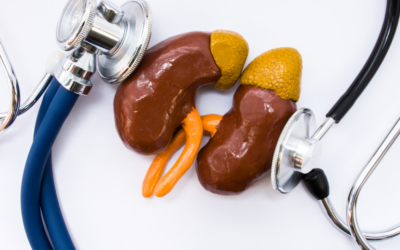Despite all the joys of the holiday season, for many of us, it’s also a stressful time. Between family obligations, financial strain, and the pressure to create a “perfect” holiday season, the majority of people report increases in stress levels at this time of year.
But it doesn’t have to be that way! Let’s make this the year you get back in touch with the reasons for the season.
The Benefits Of Giving Back
“The best way to find yourself is to lose yourself in the service of others.” – Mahatma Gandhi.
Numerous studies prove that the benefits of helping others are far-reaching. Simply put, when you help others, you improve your own mental and even physical health. Some of the benefits include:
- Reduced feelings of loneliness. For many, it’s tough to see other people surrounded by friends and family, especially at this time of year. The holidays can also trigger memories of lost loved ones. Giving back to your community helps form those much-needed connections.
- Lower blood pressure. One study found that people who volunteered about four hours a week had a 40% lower chance of developing hypertension.
- Healthier aging. On average, people who volunteer have longer lifespans. According to research, through reduced rates of depression, lowered blood pressure, increased sense of life satisfaction, and more social connections, volunteering can actually help you live longer.
- Improved sense of well-being. Giving back can lower your levels of the stress hormone cortisol, and boost the feel-good hormones dopamine and serotonin.
- Increased physical activity. In many parts of the country, it’s difficult to stay active over the winter – but that inactivity has numerous negative health repercussions. Research shows volunteers have more active hours than non-volunteers.
- Better self-confidence. Helping others activates the mesolimbic system in your brain, responsible for joy and reward sensations. This triggers the release of feel-good neurotransmitters and hormones, making you feel happier and more fulfilled. Contributing to improving the lives of others gives a sense of purpose that is often lacking in our everyday lives. This feeling of accomplishment can do wonders for your self-esteem!
Five Great Ways To Give Back This Season
1 – Organize a food drive for your local food bank
Sadly, more people are experiencing food insecurity in 2023, with 95% of food banks reporting an increase in need. Before you start collecting donations, reach out to your local food bank to ask for their wish list. Although all donations are appreciated, healthier foods will have the best impact. Many food banks are often short on protein sources such as canned fish or beans. And many are in desperate need of diapers.
2 – Teach others how to garden and avoid food waste
If you have gardening skills, contact local community gardens or schools about sharing your knowledge. Some poverty action groups also run programs to teach others to grow their own food.
Do you have thrifty ways of saving money on food or avoiding food waste? Or maybe you’re a meal-prepping pro? Share your knowledge! Now more than ever people are looking for advice and tips on how to maximize their weekly grocery runs.
3. Listen
A growing number of people feel socially isolated and alone. More and more of us are dealing with anxiety and feelings of helplessness. The simple act of listening to someone who is struggling can help ease those feelings – for both the person talking and the person listening.
Listening can be as simple as calling a family member, friend or neighbor you haven’t talked to in a while, or who you know is socially isolated. Or it can be a bigger undertaking, like volunteering for a crisis line. Many crisis-line organizations are short of volunteers right now. You could also contact a local senior’s center about volunteer visiting programs to bring some light into seniors’ lives.
4 – Volunteer for a cause you care about
Volunteering can improve your own mental, physical, and emotional health. It can also lead to new social connections.
You’ll enjoy volunteering more if you connect it to something you care about. If you’re an animal lover, contact an animal shelter. Love reading? A literacy program may be a good fit. For sporty types, many sports programs look for volunteer coaches or managers. Hospitals, senior centers, and blood banks are also in need of volunteers.
5 – Donate goods
Stop materialism from creeping into the holiday season by getting rid of things! Do an audit of your clothes, household goods, and general clutter to figure out what you don’t need to hold onto. Decluttering can help relieve stress, and it’s a great way to head into the year with a cleaner environment and a fresh start.
Some people like a phased approach. If you’re not sure about something, put it in a box and out of sight. If you haven’t opened the box after a set amount of time, donate it!
I am wishing you the best of the holiday season! Look after your health and take time to see the beauty around you. If you have any health concerns, don’t hesitate to reach out! It’s easy to put off self-care at this time of the year, but we all need to be at our best.
Sources
Harvard Medical School, “Holiday Stress and your Brain,” https://hms.harvard.edu/news-events/publications-archive/brain/holiday-stress-brain
Cañas-Lerma AJ, Campos-Vidal JF, Verger S. “Our focus is on illness and loneliness”: Volunteer work engagement, compassion satisfaction, compassion fatigue, self-care and motivations to volunteer. Health Soc Care Community. 2022 Nov;30(6):e6631-e6644. doi: 10.1111/hsc.13934. Epub 2022 Jul 27. PMID: 35894113; PMCID: PMC10087707.
Sneed RS, Cohen S. A prospective study of volunteerism and hypertension risk in older adults. Psychol Aging. 2013 Jun;28(2):578-86. doi: 10.1037/a0032718. PMID: 23795768; PMCID: PMC3804225.
Oman D, Thoresen CE, Mcmahon K. Volunteerism and Mortality among the Community-dwelling Elderly. Journal of Health Psychology. 1999;4(3):301-316. doi:10.1177/135910539900400301
Han S, Kim K, Burr JA. STRESS-BUFFERING EFFECTS OF VOLUNTEERING ON SALIVARY CORTISOL: RESULTS FROM A DAILY DIARY STUDY. Innov Aging. 2018 Nov 11;2(Suppl 1):75. doi: 10.1093/geroni/igy023.283. PMCID: PMC6228389.
Feed Amerca, “Latest Food Bank Survey Finds Majority of Food Banks Report Increased Demand,” https://www.feedingamerica.org/about-us/press-room/latest-food-bank-survey-finds-majority-food-banks-reporting-increased-demand
U.S. Department of Health and Human Services, “New Surgeon General Advisory Raises Alarm about the Devastating Impact of the Epidemic of Loneliness and Isolation in the United States,” https://www.hhs.gov/about/news/2023/05/03/new-surgeon-general-advisory-raises-alarm-about-devastating-impact-epidemic-loneliness-isolation-united-states.html
Tan EJ, Xue QL, Li T, Carlson MC, Fried LP. Volunteering: a physical activity intervention for older adults–The Experience Corps program in Baltimore. J Urban Health. 2006 Sep;83(5):954-69. doi: 10.1007/s11524-006-9060-7. PMID: 16763775; PMCID: PMC2438582.
Nichol B, Wilson R, Rodrigues A, Haighton C. Exploring the Effects of Volunteering on the Social, Mental, and Physical Health and Well-being of Volunteers: An Umbrella Review. Voluntas. 2023 May 4:1-32. doi: 10.1007/s11266-023-00573-z. Epub ahead of print. PMID: 37360509; PMCID: PMC10159229.




